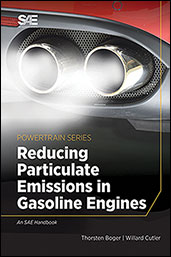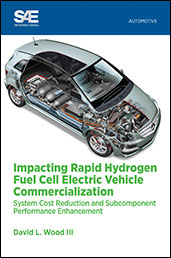Book

Reducing Particulate Emissions in Gasoline Engines
2018-11-28
For years, diesel engines have been the focus of particulate matter emission reductions. Now, however, modern diesel engines emit less particles than a comparable gasoline engine. This transformation necessitates an introduction of particulate reduction strategies for the gasoline-powered vehicle. Many strategies can be leveraged from diesel engines, but new combustion and engine control technologies will be needed to meet the latest gasoline regulations across the globe. Particulate reduction is a critical health concern in addition to the regulatory requirements. This is a vital issue with real-world implications. Reducing Particulate Emissions in Gasoline Engines encompasses the current strategies and technologies used to reduce particulates to meet regulatory requirements and curtail health hazards - reviewing principles and applications of these techniques.


